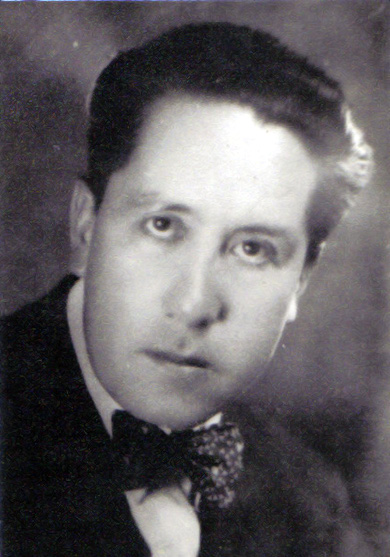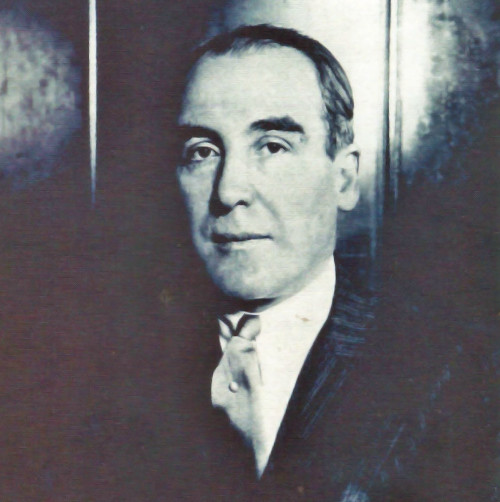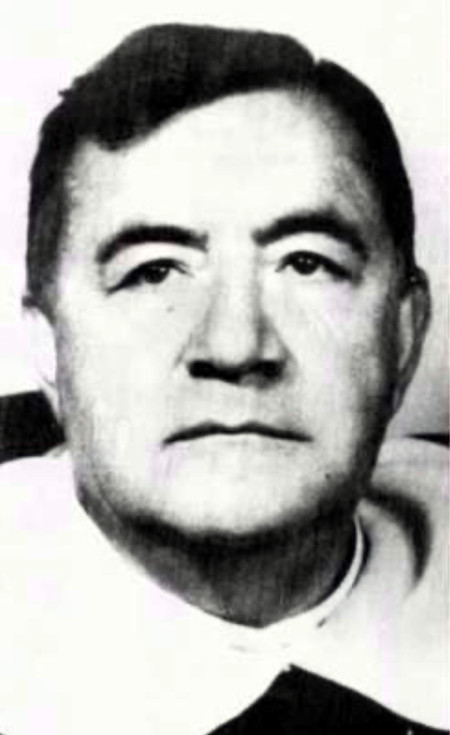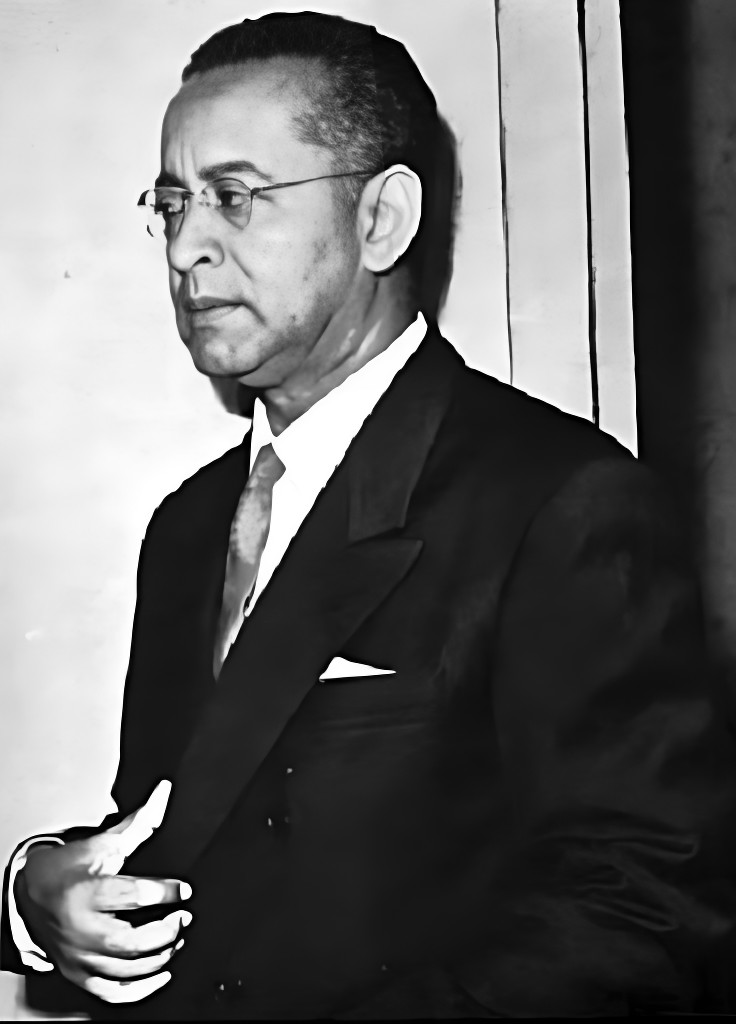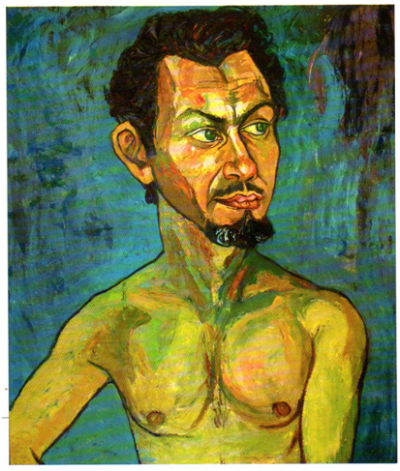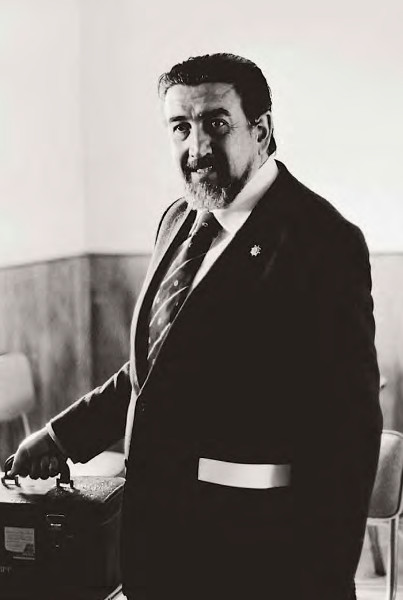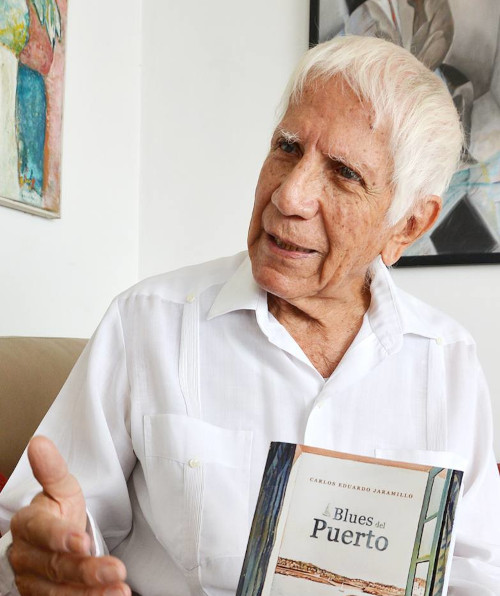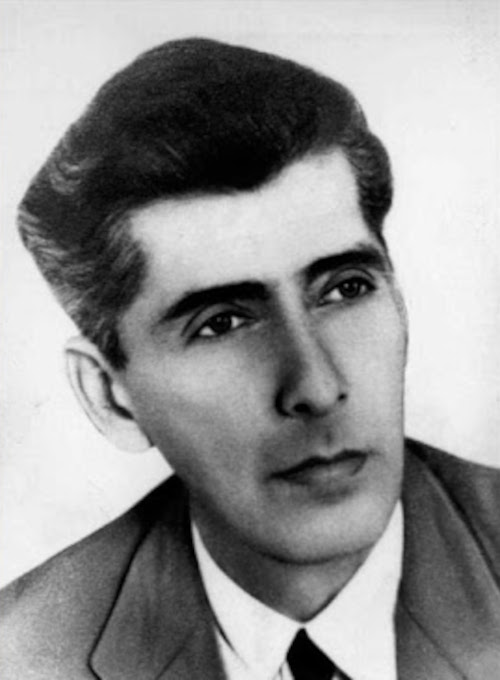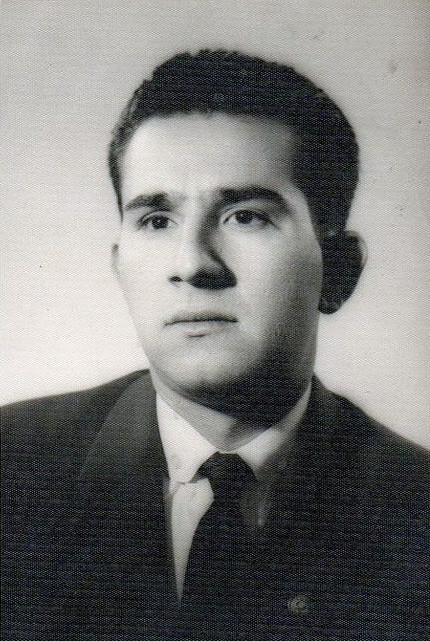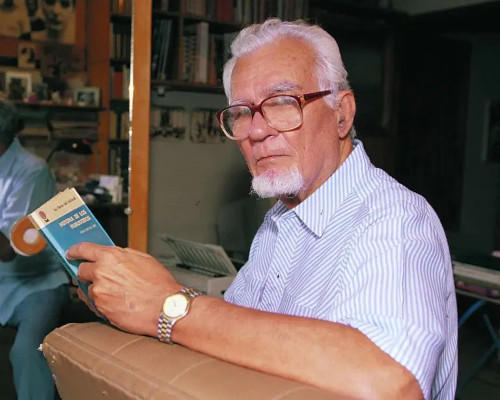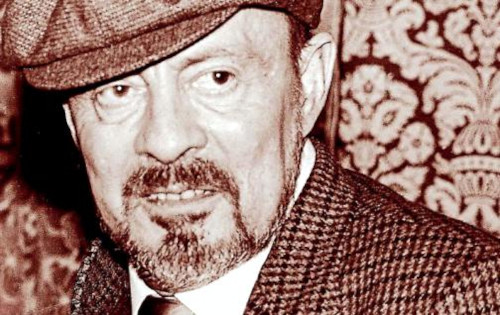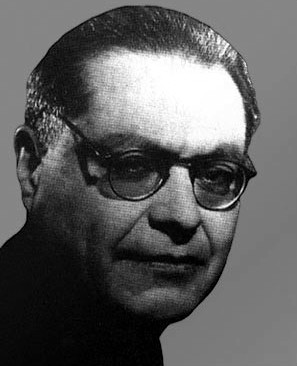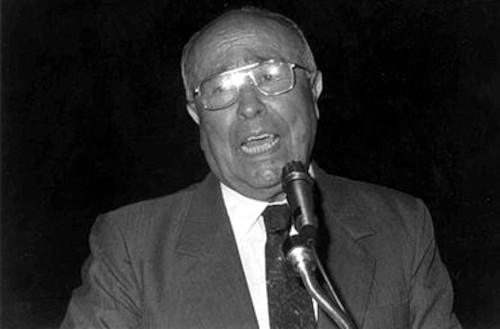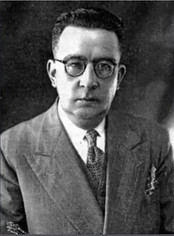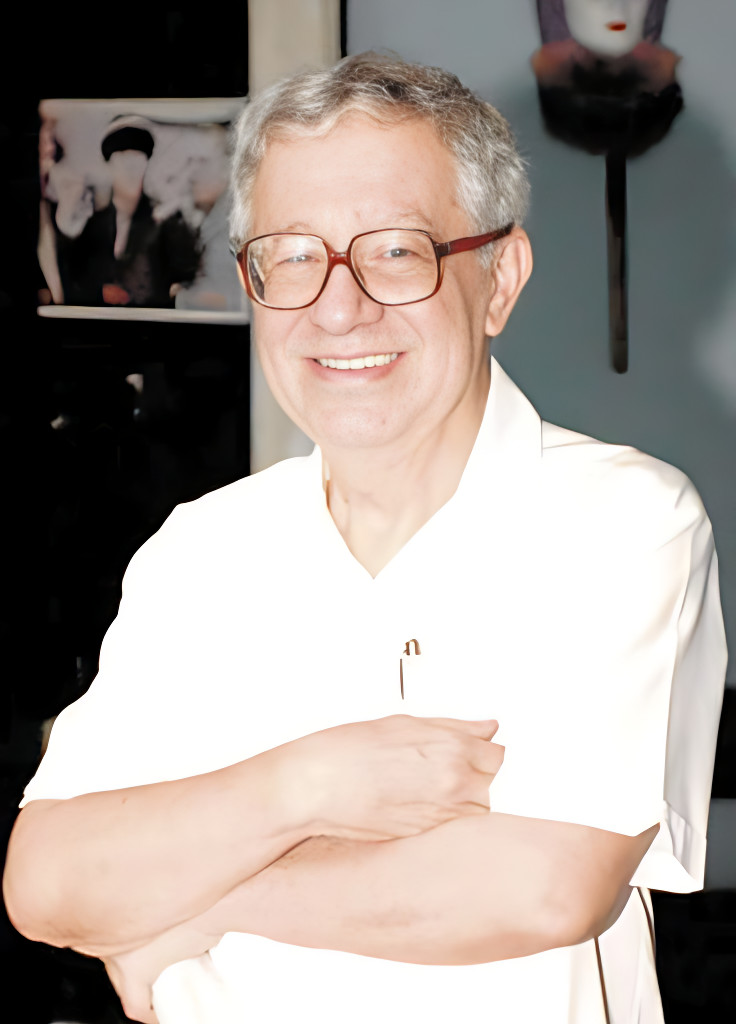Ricardo Paredes Romero (March 19, 1898 – 1979) was an Ecuadorian doctor, writer, naturalist, social scientist, and politician. Romero founded the Socialist Party – Broad Front of Ecuador.
Category: 20th Century Writers
Gonzalo Zaldumbide
Gonzalo Zaldumbide (Quito, December 25, 1884 – Quito, November 30, 1965) was an Ecuadorian writer and diplomat. He was ambassador to Paris, minister of Foreign Relations (1929) and ambassador to London (1950).
José María Vargas
Fray José María Vargas Arévalo O.P. (Chordeleg, Azuay, November 9, 1902 – Quito, March 25, 1988) was a distinguished Ecuadorian Dominican friar, historian, and author. Ordained on December 28, 1928, he made significant contributions to historical literature. His works include biographies of the 16th-century South American painter Fray Pedro Bedón and the Spanish Dominican missionary Fray Domingo de Santo Tomás. Vargas was renowned for his in-depth historical accounts of Ecuador, with notable titles like “La Cultura del Quito Colonial,” “La Evangelización en el Ecuador,” and “La Misión Científica de los Geodésicos Franceses en Quito.” His outstanding contributions to Ecuadorian culture were honored in 1984 when he was awarded the prestigious “Premio Eugenio Espejo” in the category of Culture.
Continue reading “José María Vargas”Adalberto Ortiz
Adalberto Ortiz Quiñones (Esmeraldas, February 9, 1914 – Guayaquil, February 1, 2003) was an Afro-Ecuadorian novelist, short story writer, poet, professor and diplomat. Among his most important books are: Juyungo (1942, novel; English translation by Susan Hill and Jonathan Tittler, 1983); Earth, Sound and Drum (1953, poetry); Entundada (1971, short story). His most defining feature as a writer was the incorporation of the elements of afro-Ecuadorian culture, enriching his literary vocabulary with its jargon, its elasticity and its rhythm. In 1995 Ortiz was awarded the Eugenio Espejo Prize, Ecuador’s most important literary award.
Continue reading “Adalberto Ortiz”Humberto Moré
Emilio Humberto Moré, born Lalot Rivadeneira Plata (Esmeraldas, April 14, 1929 – Havana, Cuba, 1984) was an Ecuadorian painter, sculptor, muralist, poet, writer, and art critic. He is widely regarded as one of Ecuador’s most significant painters. He developed his own style which he called “Functional Signology.” His primary contribution to literature is in the areas of art criticism and poetry. His published works include: “El chasqui dormido” (1965), “Actualidad pictórica ecuatoriana” (1970), “Evaluación de los ismos” (1968), and the poem collection “Bolívar sol de América” (1983). In 2011, Moré’s son Leonardo Rivadeneira Chaw released an artistic retrospective on his father’s work entitled “Humberto Moré y su signología.”
Continue reading “Humberto Moré”Jorge Salvador Lara
Jorge Salvador Lara (Quito, September 4, 1926 – Quito, February 8, 2012) was an Ecuadorian politician, diplomat, columnist, writer, and historian. Lara held the position of Ecuador’s Foreign Minister twice. In 1966, he was appointed Foreign Minister in the administration of interim President Clemente Yerovi. From 1976 to 1977, Lara served as Foreign Minister under Vice Admiral Alfredo Poveda’s military regime.
Continue reading “Jorge Salvador Lara”Carlos Eduardo Jaramillo
Carlos Eduardo Jaramillo Castillo (Loja, 1932) is an Ecuadorian poet, lawyer, and former minister judge of the Supreme Court of Justice. His major works include: “Escrito sobre la arena, 150 poemas” [Written on the sand, 150 poems] (1960), “La Trampa” [The Trap] (1964), “Maneras de vivir y de morir” [Ways to Live and Die] (1965), “La noche y los vencidos” [The Night and the Vanquished] (1967) and “Las desvelaciones de Jacob” [Jacob’s Revelations] (1970). He was on the General Board of the House of Ecuadorian Culture, representing Guayas. He was also the institution’s deputy director. He was awarded the Eugenio Espejo Prize in Literature in 2007 by the President of Ecuador.
Continue reading “Carlos Eduardo Jaramillo”Horacio Hidrovo Velásquez
Horacio Hidrovo Velásquez (Santa Ana, May 20, 1902 – Portoviejo, April 19, 1962) was an Ecuadorian poet, novelist, and short story writer. His most celebrated work, “Un Hombre y un Río” (1957), encapsulates his profound connection to the Ecuadorian coastal life, blending vivid narrative with social commentary. Velásquez played a significant role in the cultural sphere, serving as the President of the House of Ecuadorian Culture in Manabí in 1957, where he was instrumental in promoting the arts and literature.
Continue reading “Horacio Hidrovo Velásquez”Luis Félix López
Luis Ramón Félix López (Calceta, August 25, 1932 – Guayaquil, December 17, 2008) was an Ecuadorian doctor and politician, as well as an award-winning novelist, short story writer and poet. He held many senior government posts during his lifetime and served two terms as president of the Guayas branch of the House of Ecuadorian Culture. His 1973 novel “Los designios,” was finalist for that year’s International Novel Award (Mexico), and his 1996 novel “La noche de rebaño,” won the Joaquín Gallegos Lara Prize. He also published several short story books and a collection of poetry.
Continue reading “Luis Félix López”Miguel Donoso Pareja
Miguel Donoso Pareja (Guayaquil, July 13, 1931 – Ibidem, March 16, 2015) was an acclaimed Ecuadorian writer whose literary contributions left an indelible mark on the cultural landscape of his country. Known for his experimental narrative style, introspective explorations of themes, and dedication to promoting literature, Donoso Pareja’s impact extended far beyond the pages of his books. Through his workshops and mentorship, he nurtured the talents of aspiring writers, fostering a new generation of literary voices. His works, ranging from novels and poetry to essays and short stories, challenged conventions and invited readers to engage with complex ideas. Despite facing health challenges in his later years, Donoso Pareja’s passion for literature remained unwavering until his passing. His legacy as a writer, mentor, and cultural advocate endures, continuing to inspire and enrich the literary world in Ecuador and beyond. In recognition of his contribution to Ecuadorian literature, he was bestowed the Eugenio Espejo Prize in 2006, Ecuador’s highest literary award.
Continue reading “Miguel Donoso Pareja”Agustin Cueva
Agustin Cueva Davila (Ibarra, September 23, 1937 – Quito, May 1, 1992) was an Ecuadorian writer, literary critic, and marxist sociologist. He was awarded the Eugenio Espejo Prize in Science in 1991, by the President of Ecuador. Some of his works have been translated into other languages, such as English, Japanese and Korean.
Continue reading “Agustin Cueva”Fernando Chaves
Fernando Chaves Reyes (Otavalo, February 13, 1902 – Quito, 1999) was an Ecuadorian novelist, essayist, journalist, diplomat, and politician. He is best known for his novel Plata y bronce (1927), which pioneered the indigenist movement in Ecuadorian literature, depicting the social struggles of indigenous communities. His literary work influenced future generations, including Jorge Icaza, author of Huasipungo. In addition to his literary career, Chaves served as Ecuador’s ambassador to several countries and held the position of Minister of Education. In 1991, he was awarded the National Grand Cross of the Order of Merit.
Continue reading “Fernando Chaves”Gabriel Cevallos García
Gabriel Cevallos García (Cuenca, Ecuador, January 6, 1913 – Tampa, Florida, March 16, 2004) was an Ecuadorian writer, historian, professor, and philosopher. He was the rector of the University of Cuenca from 1964 to 1968 and founder, professor, and dean of the Faculty of Philosophy and Letters of the university. He taught for some years at the University of Puerto Rico at Mayagüez, where he settled in 1969 to work as a teacher. He was a member of the Ecuadorian Academy of Language and the National Academy of History. He was awarded the Eugenio Espejo Award in 1988 by the President of Ecuador.
Continue reading “Gabriel Cevallos García”Víctor Manuel Albornoz
Víctor Manuel Albornoz Cabanilla (Lima, March 23, 1896 – Cuenca, October 26, 1975) was an Ecuadorian writer, poet, biographer, and historian.
José Martínez Queirolo
José Miguel Martínez Queirolo (Guayaquil, March 22, 1931 – Guayaquil, October 8, 2008) was an Ecuadorian playwright and writer. He was awarded the national theater award on four occasions for his plays, La casa del qué dirán (1962), Los unos vs. Los otros (1968), La dama meona (1976) and La conquista no ha terminado todavía (1983). He was the 2001 recipient of the Eugenio Espejo Award in Literature, awarded to him by Ecuador’s president.
Continue reading “José Martínez Queirolo”
